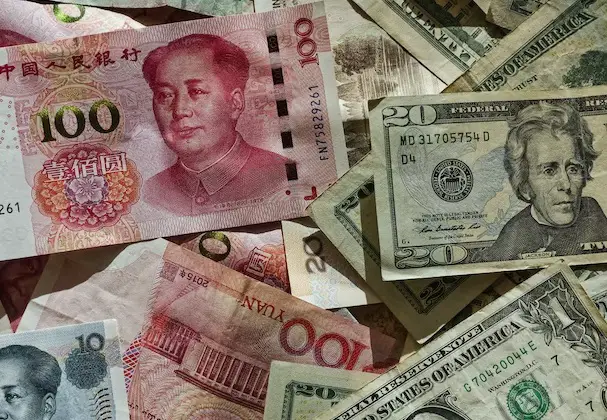In an interview with RIA Novosti on Monday, Russia’s representative at the International Monetary Fund (IMF), Aleksey Mozhin, argued that the United States has generated the conditions which are forcing nations across the world to search for alternatives to the use of the dollar for cross border trade settlements.
Mozhin noted that as time passes more and more nations are using alternative currencies for international trade, particularly the Chinese yuan.
Mozhin said, “We can see that Iranians, Brazilians, and Saudis are already switching to trade in yuan, not only with China, but also with third countries.”
Mozhin went on to make the case that the only reason behind the dollar’s dominance in the global economy was the lack of any competition, given how it was used for most international settlements and deposits worldwide.
Now however, he noted some American officials have begun to express worry over the future of the dollar, as an increasing number of nations have begun abandoning it in favor of other currencies, especially the yuan.
He said, “It’s clear that it will not happen at once, but the process has begun.”
Mozhin concluded by saying the Untied States’ use of the dollar “for the purposes of national interests, [and] the economic and financial obligations of one country,” has led other nations to conclude it is “wrong” for it to be used so widely throughout the world.
Starting last year, Russia began the process of replacing the dollar and the euro in all of its foreign settlements after Western nations imposed sanctions which blocked it from the use of Western financial systems, and froze its foreign reserves. Since then it has dramatically reduced its use of bank accounts, and transactions between financial institutions and companies, performed using Western currencies.
By the end of last year, the percentage of Russia’s international settlements settled in dollars and euros fell from 90% in early 2022 to under 50% by the end of 2022. And according to Russian Deputy Minister of Economic Development Vladimir Ilyichev, that trend is on course to continue for some time to come.

